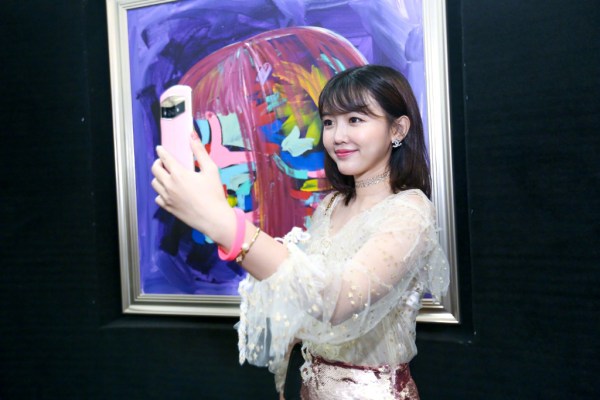You’ve probably had the experience of posing awkwardly for a photo while everyone else looks great. Now China’s top photo-editing firm Meitu has a solution that helps you resist the urge to trash that photo.
Meitu’s namesake app, which claims over 100 million monthly active users as of August, recently launched a feature that lets users virtually rotate their faces up, down, to the left or to the right. There’s already a plethora of editing apps out there that allow people to polish their shots like a pro, but Meitu wants to take retouching to another level.
“Traditional image processing technology can only perform plane stretching in two dimensions, and the image has no depth information and therefore is unable to truly reflect the changes in the posture of real life,” says a spokesperson for the company.
The feature, called “3D Reshape,” takes hints from a static portrait and applies face recognition and reconstruction technologies to generate 3D information of the user’s face. In other words, it simulates how the user’s head tilts or rotates in real life, yielding results that the firm claims are more “natural” and “realistic.”

The process is a bit eerie, but the result looks satisfying. / Credit: Meitu
The feature also works for group photos, so users can choose to fix a particular person’s unflattering pose. The Chinese company isn’t the only photo app that’s come up with 3D editing. Google’s Snapseed has a similar offer.
Meitu goes all out to perfect portraits by maintaining an in-house R&D team of 200 staff. For the 3D project, the researchers collected 18 unique facial expressions from 1,200 people who were primarily Chinese and aged between 12 and 60.
Despite being a dominator in its space, Meitu has had to look beyond photo editing for monetization since its early days. For the six months ended June 30, the firm generated 72 percent of its revenues from selling smartphones designed to take outstanding selfies, while internet-related services brought in the rest of the money.
Nonetheless, Meitu has seen its hardware revenues drop as smartphone shipments slow in China and competition heats up. By contrast, internet-based revenues jumped 132 percent year-over-year thanks to growth in advertising and “value-added” services. The latter stands for virtual items sales on Meitu’s video streaming app Meipai.
Meitu’s trove of users may have other practical use. In July, the firm shelled out $30 million for an undisclosed stake in Gengmei, a social media platform that connects customers with plastic surgeons who offer them advice. It’s not hard to imagine a future where Meitu links its beauty-seeking users to not only virtual tools but also long-lasting, real-life means.
